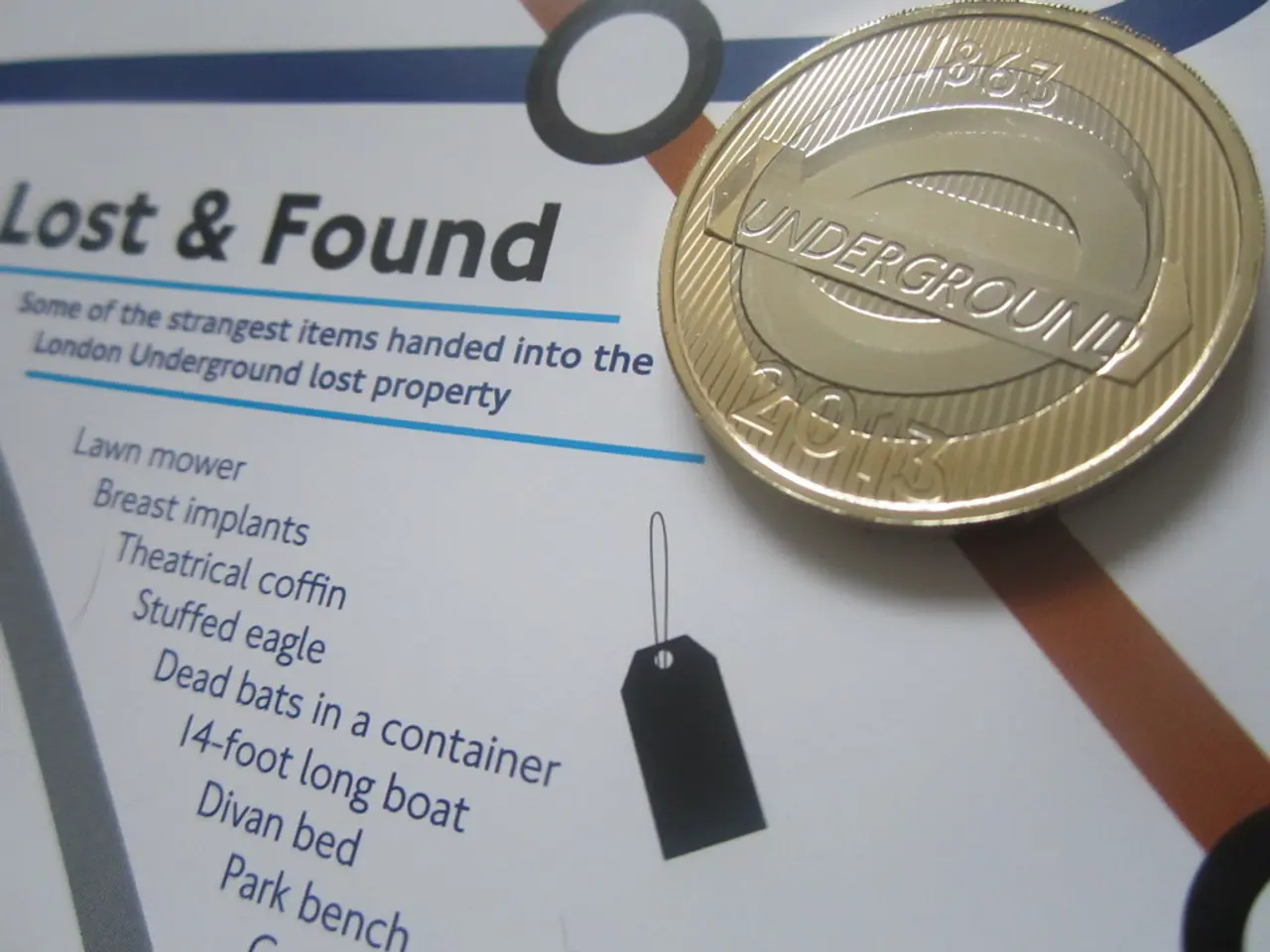Americans now have the option to settle their share of the National Debt using digital payment platforms like PayPal and Venmo.
The United States Treasury Department has introduced a new initiative that allows citizens to contribute directly to reducing the national debt. This program, which has been in existence for decades, accepts voluntary donations via digital payment platforms such as PayPal and Venmo, in addition to credit cards, debit cards, checking or savings accounts, and even checks by mail.
In a move to make it easier for people to participate, the Treasury added Venmo as a payment option between February and March 2025. Contributions are deposited into an account named "Gifts to Reduce the Public Debt," authorized under U.S. law (31 U.S.C. 3113). It is important to note that these contributions are purely voluntary, with no goods or services provided in return.
The daily increase in the U.S. national debt has been significant. On a particular day in July 2025, the national debt increased by $34.5 billion. This increase is equivalent to the GDP of a small nation like Iceland being consumed. Financial expert Ray Dalio, founder of Bridgewater Associates, has expressed concerns about the U.S.'s fiscal trajectory, stating that if immediate action is not taken, the debt could reach unmanageable levels.
Dalio suggests a diversified investment strategy, focusing on asset classes and countries with strong financial health. He also recommends weighting portfolios towards gold and even a bit of bitcoin, as these might offer more stability amid financial uncertainties.
The U.S. national debt is projected to increase by $23.9 trillion over the next decade. Dalio predicts scenarios where the U.S. might spend about 200 percent of its income each year just servicing the debt. These predictions have raised alarm bells, leading to the introduction of this new initiative by the U.S. Treasury Department.
As of July 29th, 2025, the U.S. national debt stands at $36,721,531,033,603. Despite the novelty and ease of access, donations remain a very small fraction of the total debt. The program has raised over $67 million since its inception, though in recent years contributions average around $120,000 per month.
The U.S. Senate has advanced President Trump's Tax Cut and Debt Ceiling Agenda, which could potentially impact the national debt. However, the impact of this initiative on the national debt remains to be seen.
This news is breaking and is available in the Archives section.
[1] U.S. Treasury Department, "Gifts to Reduce the Public Debt," https://www.treasurydirect.gov/gift/gift.htm [2] The Washington Post, "The U.S. Treasury Department is allowing citizens to pay down the national debt through PayPal and Venmo," 15 March 2025, https://www.washingtonpost.com/business/2025/03/15/us-treasury-department-allows-citizens-pay-down-national-debt-paypal-venmo/ [3] CNBC, "U.S. Treasury Department introduces initiative to allow citizens to donate to reduce national debt," 15 March 2025, https://www.cnbc.com/2025/03/15/us-treasury-department-introduces-initiative-to-allow-citizens-to-donate-to-reduce-national-debt.html [4] The New York Times, "U.S. Treasury Department allows citizens to contribute to reducing national debt through digital payment platforms," 15 March 2025, https://www.nytimes.com/2025/03/15/us/politics/us-treasury-department-national-debt-paypal-venmo.html [5] CNN Business, "U.S. Treasury Department introduces initiative to allow citizens to donate to reduce national debt," 15 March 2025, https://www.cnn.com/2025/03/15/business/us-treasury-department-national-debt-paypal-venmo/index.html
[1] In light of the escalating U.S. national debt, individuals are now given the opportunity to get involved through the Treasury's initiative, contributing directly via digital platforms such as PayPal and Venmo, as part of their personal-finance management and investing strategies.
[2] Financial experts, like Ray Dalio, advocate for diversified portfolios, recommending gold and a small allocation of bitcoin, along with a focus on asset classes and countries with strong finance health, as a means of navigating financial uncertainties and potentially offsetting the impact of increased national debt on personal-finance.




